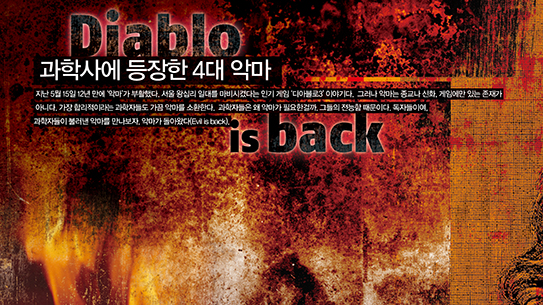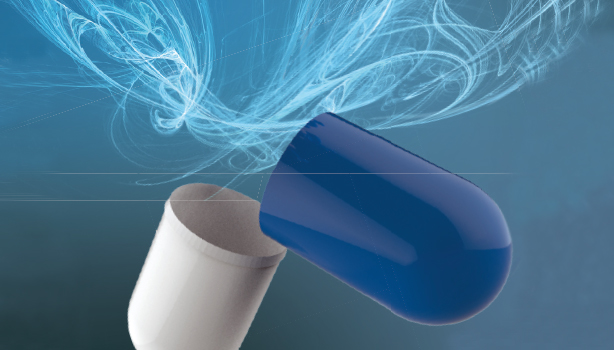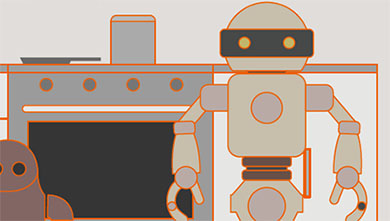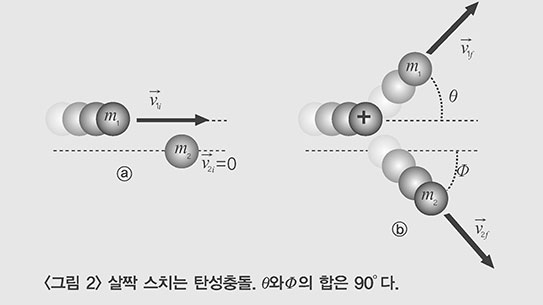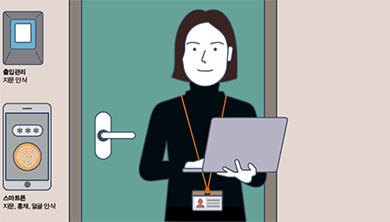과학자들에게 있어서 윤리의 문제는 과학 그 자체와는 별개로 존재하는, 개인적인 문제로 치부되기 쉽다. 그러나 과학, 혹은 과학자와 윤리의 문제는 오래 세월동안 광범위하게 논의되어 왔고, 지금도 계속되고 있다. 다음 글은 미국 버지니아주립대 화학ㆍ과학연구 교수인 헨리 바우어의 '과학윤리'(Ethics Science)라는 글의 개요부분이다. (http://www.chem.vt.edu/ethics/hbauer/hbauer-toc.html). 이 에세이는 과학적 방법과 과학연구에서 발생한 일련의 부정행위들에 대한 글로 1994년 3월 강연했던 내용을 적은 것이다. 과학의 발전은 정직함과 윤리에 의존하고 있다고 역설한 그는 "과학에서의 윤리 문제는 결코 타인의 문제가 아닌 우리의 문제이자, 나의 문제다. 과학자 모두가 윤리적으로 행동한다면 과학은 번영할 것이다"라고 결론내렸다. 과학윤리에 대해 관심이 있다면 먼저 추천사이트를 참조하는 것이 좋다. 이들 외에도 인터넷의 검색엔진에 들어가 'scienceðics'를 입력해 찾아보면 아주 많은 관련 글을 얻을 수 있다.

분석화학에 있어 윤리는 현재 당면한 문제라고 할 수 있을까?
물론입니다!
그것에 대해 비판적으로 분석한 보고서가 있을까?
물론입니다!
어떻게 내가 이 문제에 관심을 가지게 되었을까? 지난 25년간 화학을 가르치고 전기분석화학을 연구하면서, 나는 다음과 같은 철학적 물음에 관심을 갖게됐다. 왜 과학자들은 어떤 것은 연구하고, 어떤 것은 연구하지 않는가? 왜 우주의 시작에 대해 생각하는 것은 과학적이라고 하면서 UFO나 네스호의 괴물에 대한 연구는 비과학적이라고 하는가? 사회학보다 과학을 더 신뢰케 하는 것은 무엇인가?
지난 15-20년이 훨씬 넘는 기간 동안 나는 이른바 ‘과학’, ‘과학 기술학’이라는 분야를 연구하는데 시간을 보냈다. 이들 분야는 과학이 어떻게 이뤄지고, 과학이 사회와 정치, 종교에 어떤 영향을 미치는지 -거꾸로 이것들이 과학에 미치는 영향까지도-이해하려고 노력한다. 요즘 과학과 사회 제반 영역 사이에서 벌어지는 많은 대화에서는 과학의 윤리적인 문제를 다루고 있다. 예를 들면 1994년 2월14일의 C&E 뉴스(화학과 공학 뉴스)에서는 이런 글이 소개됐다.
“과학계는 위법행위에 대해 정면으로 대처해야 한다. 위법행위를 예방하기 위해 적극적으로 노력해야 하며, 문제가 발생했을 때 숨겨서는 안된다. 이런 조치들은 국립과학협회나 국립공학협회, 의학회 등이 앞장서서 강조해야 한다.”
미시간 법정은 미시간 대학에게 1백20만달러를 한 과학자에게 손해의 대가로 지불하라고 판결했다. 이것은 그 과학자가 상사로부터 연구공적을 도둑맞는 사실과, 대학이 이러한 사실에 대해 적절히 조사하지 않았다는 사실을 배심원들이 발견한 후에 일어난 판결이었다.
C&E 뉴스를 읽으면 마치 부정행위가 유행하는 것 같다.
1993년 7월호 : “두명의 화학자가 포함된 부정행위 사례 - 오하이오주립대의 레오 페이켓 교수와 오하이오 의과대의 생화학·분자생물학부의 제임스 프라이스하임 전 의장은 과학자들이 검토해온 보조금 신청안을 도용했다.”
1993년 8월호 : “뱀이 자기 꼬리를 물고 있는 듯한 벤젠 고리구조를 꿈을 통해 생각해낸 케쿨레는 독일의 민족주의자였다. 그래서 그는 오스트리아나 프랑스, 스코트랜드 등의 연구원들이 해놓은 이전 연구들을 참조하려고 하지 않았다.”
1993년 11월호 : “연구원들은 종종 부정행위에 직면하곤 한다. 학부나 석사과정의 학생들은 과학의 부정행위와 의심스런 연구실습들을 만나게 된다.”
몇년전 나는 오스트레일리아에 있는 친구로부터 자신의 박사후 과정에 있는 한 사람이 연구자료와 결과들을 외국의 경쟁자에게 누출한 사실을 발견했다는 내용의 편지를 받았다. 노벨상 수상자인 왓슨은 이중나선에 관한 연구논문에서 그에게 보여주는 것을 원치 않았던 원소유자의 자료를 얻었다고 쓰고 있다.
1976년 노벨화학상 수상자인 윌리암 립스콤은 이렇게 말했다. “나는 더이상 연구제안서를 나의 고유한 생각만으로 채울 수 없다. 이것을 많은 관리들과 감독관들이 읽을 것이기 때문이다. 나는 다른 연구자들이 시작했거나, 수행하고 있는 것들은 일단 모두 제외시킨다. 내가 처음 연구를 시작했던 당시에는 지금보다도 더, 다른 사람들의 연구를 존중해주었다. 그리고 남의 아이디어를 훔치는 일도 적었다.”
현대 과학계에서 일어나는 각종 매수행위를 노골적으로 비난했던 펜실베이니아주립대 재료과학과 교수 러스텀 로이는 기자회견을 통해 자신의 다이아몬드 합성 신공법을 발표했다. 이는 “소수의 같은 부류 검토자들만의 모임을 제한할 수 있는 유일한 방법은 해당 실험실에서 행한 작업을 똑같이 다시 행해볼 수 있는 기회를 갖는 것이다”라는 자신의 주장에 충분한 근거를 보인 것이다.
X선 결정학에서는 원시 데이터를 밝히지 않고 복합물질의 구조를 발표하는 것이 반복되고 있다. 결국 다른 사람들이 검토해 보거나, 그 작업에 근거해 이론을 펼칠 수 없게 된다.
빠른 속도로 이루어지고 있는 고온 초전도체 개발에 있어서 과학적 결과는 며칠을 더 벌기 위해 다른 그룹들보다 먼저 언론에 알려진다... 특허를 출원한 한 연구자가 제출한 보고서에는 두개의 구조적인 문제가 포함돼 있어 어떤 독자에게도 쓸모 없게 됐다... 그리고 기자회견을 했고...자세한 세부자료도 없이 가장 최근의 성공한 자료만 가지고 그 발견이 보도됐다. 결국 그는 수정안을 신문에 제출했다.
나는 불쾌하고 너저분한 이같은 행위가 있어서는 안된다는데 여러분이 동의하리라 생각한다. 하지만 이것들이 현실의 과학과 연관이 있을까? 과학이 계속 발전하기만 한다면 누가 명성을 얻든 문제거리가 될 것인가?
나는 문제가 있다고 생각한다. 왜냐하면 과학은 확실하고 믿을만한 결과를 필요로 하며, 과학자가 정직한 정도까지만 발전하기 때문이다. 과학은 실험을 통해 생각을 시험하고 참과 거짓을 증명하는 '과학적인 방법'을 사용하기 때문에 믿을만한 결과를 준다고 대부분의 사람들은 생각한다. 그렇다면 실험이 우리가 할 수 있는 전부일까? 실험을 통해 참과 거짓을 알아낼 수 있을까? 하지만 만약 실험이 예상했던 결과를 제공하지 않는다면 어떻게 하겠는가? 당신이 알고 있는 것이 틀렸다는 결과가 나왔다면 어떻게 하겠는가?
Is "etics" a current topic in analytical chemistry?
Yes indeed!
Is there a literature on it to analyze critically?
Yes indeed!
How do I come to be interested in it? After about 25 years teaching chemistry and doing research in electro-analytical chemistry, I got interested in more philosophical questions, like: Why do scientists study some things but not others? Why is it scientific to speculate about how the universe began but not scientific to study UFOs or whether the loch Ness monsters exist? What makes science so much more reliable than sociology?
So more and more over the last 15 to 20 years I’ve spent my time in what’s called “science studies”, or “science & technology studies”, which tries to understand not only how science works but also how it affects society and politics and religion - and how those affect science. Nowadays, a lot of interaction between science and the rest of society has to do with ethical questions about science. For example, in C&E News of February 14, 1994 :
“The scientific community must face the issue of scientific misconduct head on. It must work actively to prevent misconduct and not brush it under the rug when it occurs. These actions are urged by ... the National Academy of Sciences ..., the National Academy of Engineering, and the Institute of Medicine”
A Michigan judge ordered the University of Michigan ... to pay $1.2 million in damages to a scientist after a jury found that her supervisor had stolen credit for her research and that the university had failed to investigate properly.
If you read C&E News, it seems almost as though there’s an epidemic of wrong-doing”:
July 1993 : “Misconduct cases include two chemists: Leo A. Paquette, professor of chemistry at Ohio State University; and James H. Freisheim, former chairman of the Department of Biochemistry and Molecular Biology at the Medical College of Ohio... plagiarized grant applications the scientists had reviewed”
August 1993 : “Kekul was a German supernationalist who invented the dream [about the ring structure of benzene, a snake biting its tail] so he wouldn’t have to cite previous work . . . by researchers from Austria, France, and Scotland”
November 1993 : “researchers often encounter scientific misconduct - faculty and graduate students have encountered scientific misconduct and a variety of dubious research practices”
Some years ago I had a letter from a friend in Australia who had discovered that one of his post-docs had been leaking results and research materials to a competitor overseas.
In his memoir The Double Helix, Nobel-Prize-winner J. D. Watson described getting data that its owner would not have wanted him to see.
William Lipscomb, 1976 Nobel-Prize-winner in chemistry, says that he “no longer put my most original ideas in my research proposals, which are read by many referees and officials. I hold back anything that another investigator might hop on and carry out. When I was starting out, people respected each other’s research more than they do today, and there was less stealing of ideas”.
Rustum Roy, Professor of Materials Science at Penn State, himself an outspoken critic of some corrupt practices in modern science, used a press conference to announce a new method for making synthetic diamond, and justified that as “the only way to prevent . . . a small group of peer reviewers . . . [having] an advance chance to duplicate the work in their labs”
In X-ray crystallography, it had become routine to publish structures of complex substances without giving the raw data, so that others couldn’t do proper checks or build on the work.
In the hurry to develop high-temperature superconductors “scientific results were announced first in the press to gain a few days on other groups. . . . [One researcher] applied for a patent [and then] submitted a paper containing two systematic mistakes making it useless to any reader. . . . [and gave] a press conference . . . announcing - without giving any detail - the discovery . . . . Only . . . at the latest possible date, did he send his corrections to the journal”.
I hope you agree that all this is unpleasant, sleazy, and shouldn’t happen. But does it have anything to do with the actual science? Does it really matter, who gets the credit, so long as science keeps progressing?
I think it does matter - because science progresses with sound, reliable results only to the degree that scientists are honest. Most people think science gives trustworthy results because of “the scientific method”: testing ideas by experiment and so either proving or disproving them. Isn’t that what you all do? Experiment, and find out what’s true and what isn’t? But what if an experiment doesn’t give the result you expected? What if it gives a result that you just know is wrong in some way?







